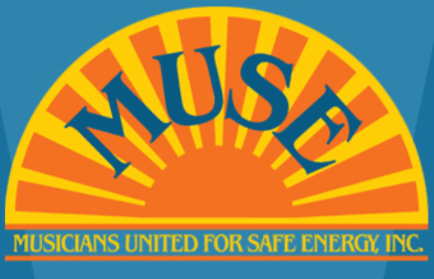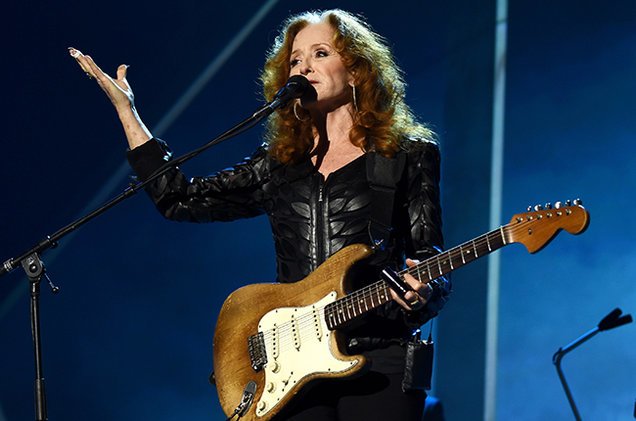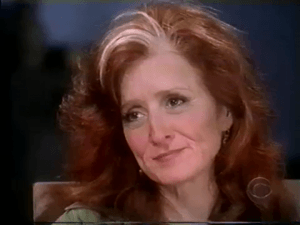
Bonnie Raitt—who co-founded Musicians United for Safe Energy (MUSE) with Jackson Browne, Graham Nash and others—has roundly rejected pro-nuclear-power arguments heard during the Paris climate talks.
A longtime environmental activist, Raitt reacted to recent commentaries in the New York Times and the Guardian newspapers, calling for a reconsideration of nuclear power as a carbon-free energy source to combat climate change.
NPR reported on the rise in nuclear power advocacy in Paris in a Dec. 1 interview with Matthew Bunn, a nuclear and energy policy analyst and professor at Harvard University.
“Both the United States and quite a number of other countries are pushing nuclear hard as one of the clean energy options that are available,” said Bunn.
Raitt says anti-nuclear power activists stand ready to push back, hard, on “the idea that there’s some new form of nuclear power that’s safer and more viable. There’s no solution for nuclear waste. There have been incredible cost overruns and delays” in nuclear plant construction. And nuclear power plants continue to pose “the security threat of terrorism,” she says.
“There are a lot of smart people on the side of pro nukes,” acknowledges Raitt, “But I find a lot more people making the anti-nuke argument.”
Raitt made her comments during an interview about her forthcoming album “Dig in Deep,” set for release Feb. 26, which she will be supporting with a tour opening Feb. 22 in Northridge, Calif.. Selected tickets sold on this tour—as well as on tours by Browne, Nash, and David Crosby—benefit the Guacamole Fund, which supports the ongoing anti-nuclear-power efforts of MUSE and other organizations.
More than 35 years before the Paris Climate Summit drew world leaders to discuss how to avoid an environmental calamity, the artists of MUSE used their music and celebrity to draw attention to renewable, carbon-free, energy options, including wind and solar power. (Raitt, Browne and Nash co-founded MUSE with John Hall of Orleans, who subsequently served three terms in Congress, and activist Harvey Wasserstein of nukefree.org).

In September 1979, Madison Square Garden in New York was sold out for four nights for “No Nukes, The MUSE Concerts For A Non-Nuclear Future,” featuring the group’s organizers and an all-star roster including Crosby, Stills & Nash; Tom Petty & the Heartbreakers; the Doobie Brothers; James Taylor; Carly Simon; and Bruce Springsteen and the E Street Band.
That week of concerts concluded with an anti-nuclear-power rally and concert that drew 200,000 to the then-empty landfill off Battery Park City in lower Manhattan. Among the songs performed that day was John Hall’s “Power,” which became an anthem of the renewable energy movement.
The MUSE concerts took place in the wake of the partial meltdown in March 1979 of a nuclear reactor at Three Mile Island, near Middletown, Pa.. “This was the most serious accident in U.S. commercial nuclear power plant operating history, although its small radioactive releases had no detectable health effects on plant workers or the public,” according to the United States Nuclear Regulatory Commission.
Even today’s nuclear power advocates acknowledge that the Three Mile Island accident helped turn public opinion against the industry. The incident inspired Springsteen to write a harrowing song, “Roulette,” describing a family’s flight from their home near the nuclear plant.
In the years since the No Nukes concerts, Raitt and her fellow MUSE have remained vigilant about developments in the U.S. nuclear industry.
“Absolutely,” she says, “Jackson Browne and Graham Nash and John Hall and I have all stayed active.” She cites, for example, their fund-raising for the Nuclear Information and Resource Service.
Raitt and her colleagues also have dug deep into the political process when needed. In 2007, the MUSE artists, joined by Ben Harper and Keb’ Mo’, recorded a version of Buffalo Springfield’s classic “For What It’s Worth” to publicize their opposition to $50 billion of loan guarantees for nuclear plant construction in energy legislation before Congress. After a campaign by nukefree.org, among others, Congress rejected the loan guarantees.
Then in August 2011, following the disaster at the Fukushima Daiichi nuclear power plant in Japan, MUSE staged its largest concert since the “No Nukes” shows at the Shoreline Amphitheater in Mountain View, Calif. Fans saw a video that highlighted MUSE’s years of opposition to nuclear power and support for sustainable energy sources.
“Whether it’s grass roots groups or national organizations, there are a lot of people working on the ground,” says Raitt. “And there are certainly breakthrough technologies that are bringing the price down” of solar power and other alternatives.
Raitt notes that engineer and entrepreneur Elon Musk, creator of the Tesla electric car, “has just done some amazing stuff for countering the argument that solar and wind energy is intermittent. Well, they’re not, because the technology for storing the energy is so much better.”

Says Raitt:“The evolution of the safe energy movement— and the explosion of success around the globe in solar and wind and alternative energies— has certainly outweighed, in my mind, any argument for quote unquote safe new nukes.”
Source: © Copyright Billboard













 Visitors Today : 61
Visitors Today : 61 Now Online : 0
Now Online : 0















































































































